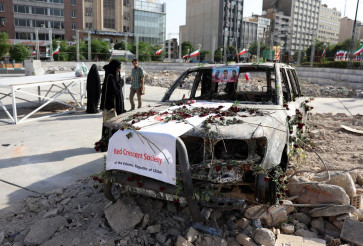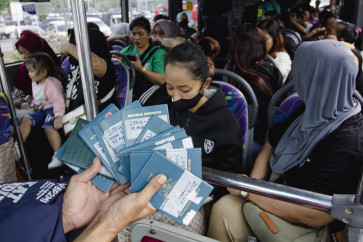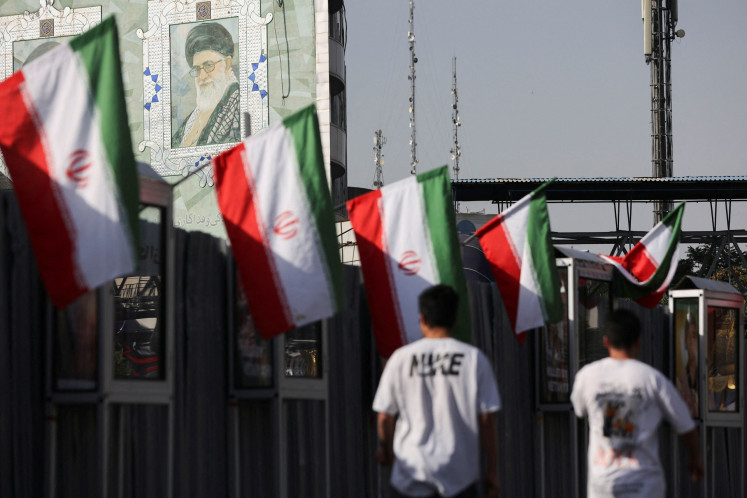Popular Reads
Top Results
Can't find what you're looking for?
View all search resultsPopular Reads
Top Results
Can't find what you're looking for?
View all search resultsIndonesia lacks qualified doctors, medication to treat rare diseases
Thin in number, patients of rare diseases lack access to medication and proper treatment in Indonesia, which at times leads to premature death
Change text size
Gift Premium Articles
to Anyone

T
hin in number, patients of rare diseases lack access to medication and proper treatment in Indonesia, which at times leads to premature death.
In commemoration of the international Rare Disease Day, Central Jakarta’s Cipto Mangunkusumo Hospital (RSCM) recently held a photo exhibition showing patients and their stories.
One of those stories is that of Alif, a 13-year-old boy who suffers from hunter syndrome.
A board with information about Alif and his illness was installed between two bird paintings. Alif is the painter of those two paintings, which proves that his disease has not limited his talent.
Hunter syndrome, or MPS (Mucopolysaccharidosis) type II, which Alif suffers from since his birth, is a genetic disorder characterized by a shortage of certain enzymes that renders patients unable to digest certain food substances. MPS type II weakens the function of the heart and muscles and causes a swollen face.
MPS is just one of 6,000 to 8,000 types of rare diseases globally, 80 percent of which are caused by genetic disorders. Like Australia, Indonesia categorizes a disease as rare if fewer than one in 2,000 people suffer from it.
During a media discussion, it was revealed that MPS is the most frequently occurring rare disease in Indonesia.
RSCM pediatrician Damayanti R. Sjarif explained that a lack of information and experience among medical practitioners often aggravates rare disease patients.
“The problem is that most of the time, it takes more than three different doctors to diagnose what kind of disease a child suffers from,” Damayanti, who specializes in genetic disorders, said during the discussion.
She added that Indonesia had yet to create a medical system to diagnose the types of rare diseases in patients.
Several MPS patients in Indonesia now received financial aid for enzyme replacement therapy, which costs Rp 3 billion (US$225,000) per six months.
Beside the lack of medical practitioners qualified for rare diseases, Damayanti added, another major problem was the unavailability of certain drugs, because they are not produced in Indonesia and imports are hampered.
“The shipment of drugs sometimes gets hung up in Indonesian customs. In one case, a child died because the customs [officials] held the medicine,” she added.
She explained that while the Indonesian Rare Disease Association had succeeded in getting the government to scrap the import tax on MPS medicine last year, they had yet to solve the problem of accelerating the release of imported medicines from customs. The association is trying to establish agreement with local customs offices.
Indonesia Rare Disease Association head Peni Utami said her association had been established (in 2015) to educate and inform people about rare diseases. The association also connects family members of patients with medical practitioners who are skilled to provide proper treatment for rare diseases. (rdi)









